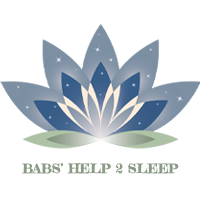Naps play an important role in our children’s emotional and physical development. When they miss a nap they are often fussy, irritated, easily distracted, have difficulty concentrating and are more susceptible to tantrums. But to convince your little one that it’s time to relax and take a nap is often a completely different story. So, how can you tackle naptime problems and lay the foundations for proper sleep habits?
Here are some helpful tips for you?
Why are naps so important?
Naps help develop your little one.
The amount of cognitive development that takes place when our little ones nap is really impressive.
Infants that take a nice long nap right after they have been taught something new demonstrate higher levels of memory and learning 24 hours later the new information has been introduced to them. So a napping baby is actually a learning baby. How impressive is that ?!
Naps help our little ones grow.
I think many know this … napping babies are more likely to experience a growth spurt. Research shows that they not only grow longer but also gain weight. What is even more exciting is that growth spurts do not only occur during naps, they are also significantly influenced by them! In short, this means that depriving babies and toddlers of nap time can affect their physical and mental growth. That aside, when you are allowed to experience a growth spurt for yourself, you experience what incredibly unfulfilled hunger can look like. This is because their body needs a lot of energy during rapid growth periods so it can complete its tasks of development. Nevertheless, it needs much more than that. It also requires extra sleep as a lot of growth is also happening while they are a dreaming.
Naps promote positive emotional responses in our little ones.
We all know that having a restless child around us means that we will be called to deal with fatigue-induced crankiness at some point, which involves a lot of whining, fussiness, and tantrum-throwing behaviours. On the contrary, rested children are far less irritable, more well-behaved, and significantly more content. Sounds like something we all want, right?
Naps help our little ones sleep better at night.
And this is really true! sometimes parents think they will keep their child awake during the day so that they are tired enough at night to sleep well. Unfortunately, this often does not give the desired result. We hope that the more tired they are, they can fall asleep more easily. Unfortunately, this is not the case at all, at least not for kids. Children that skip naps are acting stressed and wired, and turn bedtime into a struggle for both them and, of course, you, unless you take the baby for a nap in the late evening, when napping will interfere with night-time sleep.

Ideal Number of Naps for Babies
New-born up to 3 months – 4-5 naps
3-6 months – 3-4 naps
6-11 months – 2-3 naps
12+ months – 1 nap Duration of each nap should be at least an hour.
Why does my little one Struggle to Nap?
There are many things that may not go well, below I will discuss the main reasons and also the solution to the problems.
Your little one is not yet able to adapt to the 24 hour day.
It usually takes 12 weeks for an infant to develop strong, hormonally-driven, circadian rhythms while some babies need much longer than that. This means that for the first 3 months, your baby will probably not be able to appreciate that night-time is for sleeping. This doesn’t mean that you have no option other than waiting out. There are ways to help babies attune themselves faster and awaken at roughly the same times every morning.
For example:
• Expose your baby to daylight during the morning and afternoon.
• Include your baby in the family’s social life and your daily activities. All the hustle and bustle of the day will help tune the baby’s inner clock with the 24-hour day.
• Avoid exposing your little one to LED lights and other artificial lights before bedtime (and during their naps too). It has been evidenced that blue light blocks the production of the sleepy hormone (melatonin) and can delay sleepiness for more than an hour.
Is my baby hungry?
New-borns require frequent feeding. We all know that, and while we can’t control when they get hungry, we can feed them shortly before bedtime. This will encourage your little one to sleep longer, which will also give you more time to rest too. This is only for babies who are growing well and are healthy.
Too much excitement before bedtime.
Some overstimulating busy crazy interactions or a few minutes of boisterous play are enough to keep your child alert. Try to make the last couple of hours before bedtime as calm and quiet as possible.
Note: Too much screen time before bedtime has the same effect as exciting activities. Besides taking the baby longer to fall asleep at night, touch screens on smartphones and other similar devices are to blame for shorter night sleep times too.
Best environment for naps
Main important factors for napping …
The temperature in your baby’s room.
Cooler rooms generally help with better quality sleep. Our internal temperature is usually at its highest in the early afternoon but cools off when we fall asleep, until 5am, when it is at its lowest. So, helping an infant’s body to lower its temperature will allow it to fall asleep faster and, at the same time, encourage deeper sleep. The point is to provide an environment that is neither too hot nor too cold, as both will require the body to waste energy trying to regulate its internal temperature. The optimal temperature is between 68-72 ° F (19-21 ° C). Having that said, another critical reason to control the temperature in the baby’s room is to avoid the risk of overheating,
Which elevates the risk of SIDS (Sudden Infant Death Syndrome).
Darkness of your baby’s room
A dark, cool room improves the quality of sleep. When there is no light, a signal is sent to the brain that it is time to rest. That signal gradually ensures that your little one is prepared to sleep (body temperature drops, muscles begin to relax and your baby starts feeling drowsy). This is the “melatonin effect”, which can only be activated when it is dark. It affects not only the onset of sleep but also its quality.
In addition, it can have a stimulating effect for your little one, which is wonderful when we want them to learn and grow, but what is bad news when it is bedtime.
How dark the baby’s room needs to be? If you outstretch your hand in front of your face and cannot see your hand clearly, you have probably created a nap-perfect environment.
Noise
Sound can play a factor so that your little one gets overstimulated. While it is impossible to control your environment completely, there are a few things you can do.
You can block some living noises with a white noise machine, which blocks the sounds from inside the room. Don’t worry, it is not habit-forming or addictive. In fact, your uterus was full of white noise when your baby was in your tummy! You may imagine how deafening silence can be for infants. The key to using white noise effectively and safely is to make sure it is not louder than 50dB. Place the source of white noise across from the baby’s crib and let it play non-stop, during naps and night sleep alike.
Sleep should be a family priority as it is not only your baby that needs sleep; you and your partner must also enjoy 7-9 (undisturbed) hours of sleep to feel your best. So, try to establish a calming bedtime routine that includes low-level lighting, some white noise, and cool temperatures, and make sure the baby doesn’t get too much excitement right before his or her naps and you are off to a good start !
